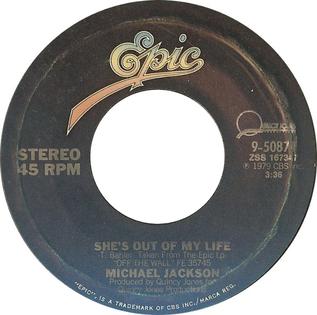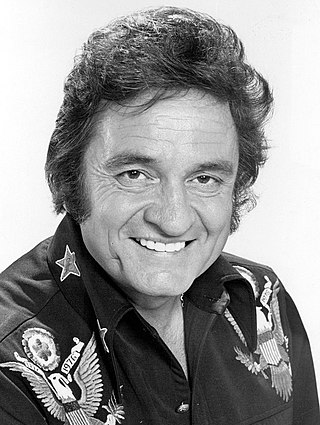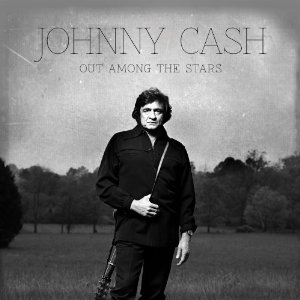Related Research Articles

William John Clifton Haley was an American rock and roll musician. He is credited by many with first popularizing this form of music in the early 1950s with his group Bill Haley & His Comets and million-selling hits such as "Rock Around the Clock", "See You Later, Alligator", "Shake, Rattle and Roll", "Rocket 88", "Skinny Minnie", and "Razzle Dazzle". Haley has sold over 60 million records worldwide. In 1987, he was posthumously inducted into the Rock and Roll Hall of Fame.

Waylon Arnold Jennings was an American singer, songwriter, musician, and actor. He is considered one of the pioneers of the outlaw movement in country music.

Carl Lee Perkins was an American guitarist, singer and songwriter. A rockabilly great and pioneer of rock and roll, he began his recording career at the Sun Studio, in Memphis, beginning in 1954. Among his best-known songs are "Blue Suede Shoes", "Honey Don't", "Matchbox" and "Everybody's Trying to Be My Baby".

"A Boy Named Sue" is a song written by Shel Silverstein and made famous by Johnny Cash. Cash recorded the song live in concert on February 24, 1969, at California's San Quentin State Prison for his At San Quentin album. Cash also performed the song in December 1969 at Madison Square Garden. The live San Quentin version of the song became Cash's biggest hit on the Billboard Hot 100 chart and his only top ten single there, spending three weeks at No. 2 in 1969, held out of the top spot by "Honky Tonk Women" by The Rolling Stones. The track also topped the Billboard Hot Country Songs and Easy Listening charts that same year and was certified Gold on August 14, 1969, by the RIAA.

Halfway to Sanity is the 10th studio album by the American punk rock band Ramones, and their last album to feature drummer Richie Ramone. It was produced by Daniel Rey and released on September 15, 1987, by Sire Records. Recording sessions began that April at Intergalactic Studios in New York City, with the band recording instruments before vocals in order to learn songs more quickly. It fared well on charts outside the United States, but peaked at No. 172 on the Billboard 200.

Animal Boy is the ninth studio album by the American punk rock band Ramones, released through Sire Records on May 19, 1986. Due to conflicts within the group, the album features less of lead singer Joey Ramone, both in performing and writing, and less performing from guitarist Johnny Ramone. Bassist Dee Dee Ramone wrote and sang more on this album than on previous albums, and Richie Ramone became the first drummer to write songs for the band since Tommy Ramone, the band's original drummer. Richie also wrote for Too Tough To Die (1984). The album spawned four singles, all of which charted on the UK Singles Chart, as well as other charts. In addition to singles, the band promoted their album using a music video for "Something to Believe In", which parodied the contemporary benefit concerts Live Aid and Hands Across America.

"She's Out of My Life" is a song written by American songwriter Tom Bahler and performed by American singer Michael Jackson. The song was released as the fourth single from Jackson's 1979 album Off the Wall released in April 1980. In 2004, the song appeared in The Ultimate Collection. It peaked at No. 10 on the Billboard Hot 100, marking the first time any solo artist had ever achieved four Top 10 hits from one album. In America, it earned a million-selling Platinum certification.
"(Ghost) Riders in the Sky: A Cowboy Legend" is a cowboy-styled country/western song written in 1948 by American songwriter, film and television actor Stan Jones.

Reggie Grimes Young Jr. was an American musician who was lead guitarist in the American Sound Studio house band, The Memphis Boys, and was a leading session musician.

Black on Black is a studio album by American country music artist Waylon Jennings, released on RCA Victor in 1982.

John R. Cash was an American country singer-songwriter. Most of Cash's music contains themes of sorrow, moral tribulation, and redemption, especially songs from the later stages of his career. He was known for his deep, calm, bass-baritone voice, the distinctive sound of his backing band, The Tennessee Three, that was characterized by its train-like chugging guitar rhythms, a rebelliousness coupled with an increasingly somber and humble demeanor, and his free prison concerts. Cash wore a trademark all-black stage wardrobe, which earned him the nickname as the "Man in Black".

Out Among the Stars is the fourth posthumously released studio album by Johnny Cash. It was released on March 25, 2014, by Legacy Recordings. The recordings come from lost 1980s sessions with famed countrypolitan producer Billy Sherrill, which were shelved by Cash's record company, Columbia Records, and discovered by Cash's son John Carter Cash in 2012.
"Boa Constrictor" is a song written by Shel Silverstein and originally featured on his 1962 album Inside Folk Songs.
"Mister Garfield" is a traditional song sometimes credited to Ramblin' Jack Elliott.
"Red Velvet" is a song written by Ian Tyson and recorded by Johnny Cash. While the Cash version is the best known, it was first recorded by Ian & Sylvia Tyson in 1965 on their album Early Morning Rain.
"Bad News" is a song written by and originally released by John D. Loudermilk, whose version reached #23 on the U.S. Billboard country chart in 1963.
"Rosanna's Going Wild" is a song written by June, Helen and Anita Carter for Johnny Cash.
"See Ruby Fall" is a song co-written by Johnny Cash and Roy Orbison. The title is a play on the phrase "See Ruby Falls", which is painted on some Southern barn roofs to direct potential tourists to a well-known waterfall in Chattanooga.
"The General Lee" is a song co-written by and originally recorded by Johnny Cash for the 1982 soundtrack album to the television series The Dukes of Hazzard.
"That Old Wheel" is a song written by Jennifer Pierce and recorded by Johnny Cash together with Hank Williams Jr. for Cash's Jack Clement–produced 1988 album Water from the Wells of Home.
References
- ↑ "The Chicken In Black". Johnny Cash Official Site. Retrieved 2021-02-05.
- 1 2 "Johnny Cash - The Chicken In Black | Releases". Discogs . Retrieved 2021-02-05.
ZS5 02803: The General Lee -T. Bresh - J. Cash- Taken From The Scotti Brothers Lp: "The Dukes of Hazzard" FZ 37712 Johnny Cash // Duelin' Dukes -J. D'Andrea - J. Harrington -J. Pennig- Narration: Sorrell Booke
- ↑ Peter Lewry (2001). I've Been Everywhere: A Johnny Cash Chronicle. Helter Skelter. ISBN 978-1-900924-22-1.
- ↑ Steve Turner (30 October 2005). The Man Called CASH: The Life, Love and Faith of an American Legend. Thomas Nelson. pp. 249–. ISBN 978-1-4185-7809-1.
- ↑ The Johnny Cash Record Catalog. Greenwood Publishing Group. 1994. p. 10. ISBN 978-0-313-29506-5.
- ↑ [2] [3] [4] [5]
- ↑ "Johnny Cash". Billboard .
- ↑ Crouch, Ian (31 March 2014). "JOHNNY CASH EIGHTIES MAN". New Yorker.
- ↑ Cash, Johnny (7 October 2003). Cash: The Autobiography. p. 171. ISBN 978-0060727536.
- ↑ Hilburn, Robert (4 November 2014). Johnny Cash: The Life. p. 502. ISBN 978-0316194747.
- ↑ "Johnny Cash Chart History (Hot Country Songs)". Billboard. Retrieved 2021-02-05.